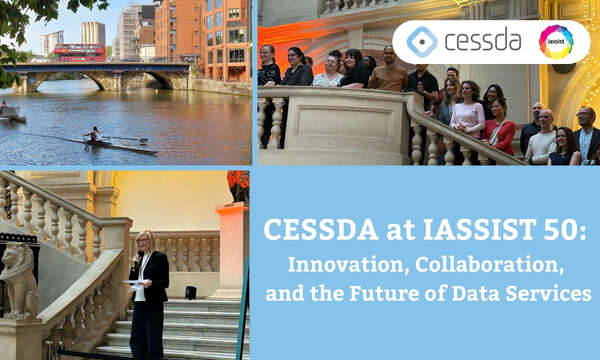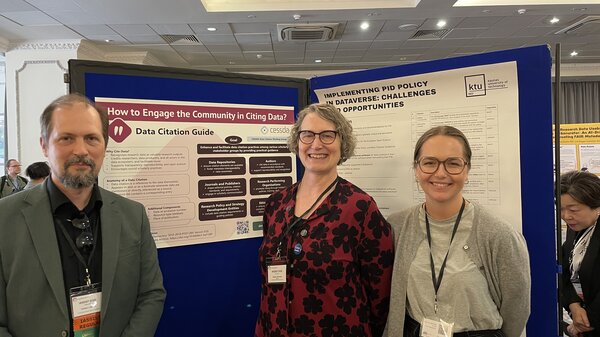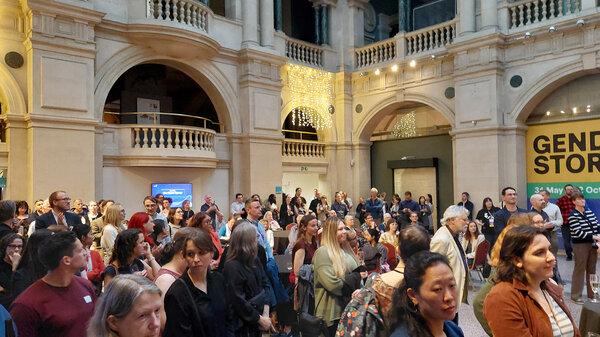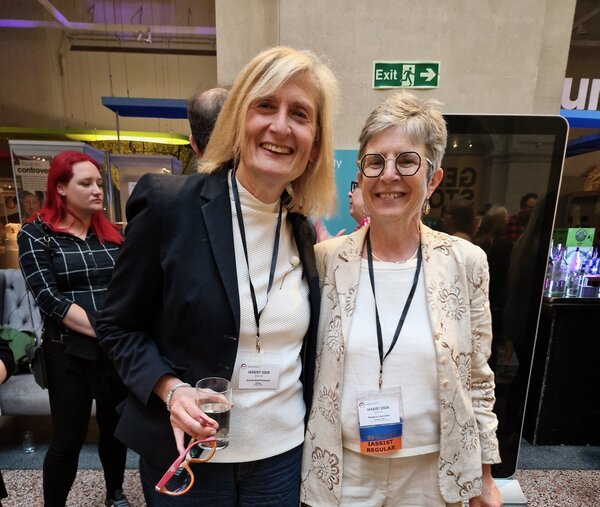
Reflections from IASSIST 2025: Innovation, Collaboration, and the Future of Data Services
At the International Association for Social Science Information Service and Technology (IASSIST) conference, our team joined experts and partners from across the globe to explore how we can make data more accessible, trustworthy, and impactful for research and policy. With a packed programme and lively discussions, three key themes stood out this year: the rapid evolution of generative AI, the growing culture of data citation, and the transformative potential of synthetic data.
Generative AI and Responsible Innovation
Generative AI featured prominently throughout the conference. One standout example was the use of Large Language Models (LLMs) to help researchers explore complex datasets like UK census flow data. Speakers highlighted both the promise and limitations of AI tools, stressing the importance of investing in in-house expertise to keep pace with developments.
Notably, there were clear regional differences in how AI governance and policy are being approached. While North America and Europe share concerns around transparency and responsible innovation, legal and ethical expectations differ, underscoring the need for tailored strategies and cross-border dialogue.

CESSDA Director Bonnie Wolff-Boenisch delivering the opening
reception speech at the Bristol Museum & Art Gallery.
Data Citation
Another important theme was the growing culture of data citation, with increasing numbers of journals requiring authors to cite their data properly. While this marks important progress, the challenge of embedding consistent practices across disciplines remains. The CESSDA Key Topic Working Group on Data Citation presented practical recommendations for improving machine-actionable citation and supporting researchers and librarians in meeting these standards.
As one conference speaker put it, “Data is becoming as important to research as publications themselves.” Supporting that shift will require ongoing collaboration between data services, libraries, and researchers.

CESSDA's Data Citation Guide Working Group, here represented by
Tuomas Alaterä (FSD),Helena Laaksonen (FSD), and Lisa Tveit Sandberg (Sikt),
presented their work and challenges they face at the Poster Reception.
Synthetic Data
The third major theme was synthetic data and its potential to safely expand data access while protecting privacy. Sessions offered insights into recent ESRC-funded projects and showcased how standardised terminology and better outreach could help build trust in synthetic data methods. However, scalability and public understanding remain key challenges that will require sustained attention.

IASSIST has been an annual highlight for the community, drawing
researchers and scientists from all across the world.
From Across the CESSDA Network
Several CESSDA service providers played an active role in the programme and discussions. Lisa Tveit Sandberg from the Norwegian Service Provider Sikt attended IASSIST for the first time, as part of the Data Citation Guide Work Group:
“Attending IASSIST is a great opportunity to connect with colleagues from around the world who work on similar issues. It was useful to discuss shared challenges and learn from each other’s experiences. It was also really nice to meet colleagues that we collaborate with through CESSDA in person. The data citation working group, which I am a part of, presented a poster on the CESSDA Data Citation Guide, which led to some interesting discussions on how to best promote data citation.”
IASSIST is a great opportunity to meet up with colleagues from afar.
Bonnie Wolff-Boenisch and ICPSR Director Maragaret "Maggie" Levenstein
had a rare chance to meet and talk in person.
The UK Data Service team fully embraced the IASSIST experience—from early Tuesday workshops to the final session on Friday. The AI-focused workshop on metadata practices was particularly engaging, sparking thoughtful discussion on the power and limitations of LLMs.
There was no shortage of high-quality sessions, with standout presentations from John Sanderson on service improvement, and from Cristina Magder, Melissa Ogwayo, Emily Oliver, and Lora Frayling on synthetic data and research governance. The plenary talks also impressed, with Steve McEachern’s “Unified Theory of Archiving” and Shawn Sobers’ powerful reflections on hidden histories drawing praise.
Beyond the formal programme, the conference offered a chance to reconnect with CESSDA colleagues, admire the brave ceilidh (traditional scottish) dancers, and celebrate the vibrant and diverse spirit of the IASSIST community.

“This was the best IASSIST ever!” said Camilla Thomsen from UKDS.
And lastly, Ami Saji from the French Service Provider Progedo shared why she found the conference to be a meaningful experience:
“At IASSIST, we had the opportunity to present how the FAIR principles have shaped our data repository, Quetelet-Progedo, and to highlight current use cases of the multilingual ELSST thesaurus in a joint session with the ELSST team. The conference was a valuable opportunity to connect and exchange ideas with colleagues engaged across all stages of the data lifecycle. We return with fresh insights and inspiration to strengthen our core activities.”
